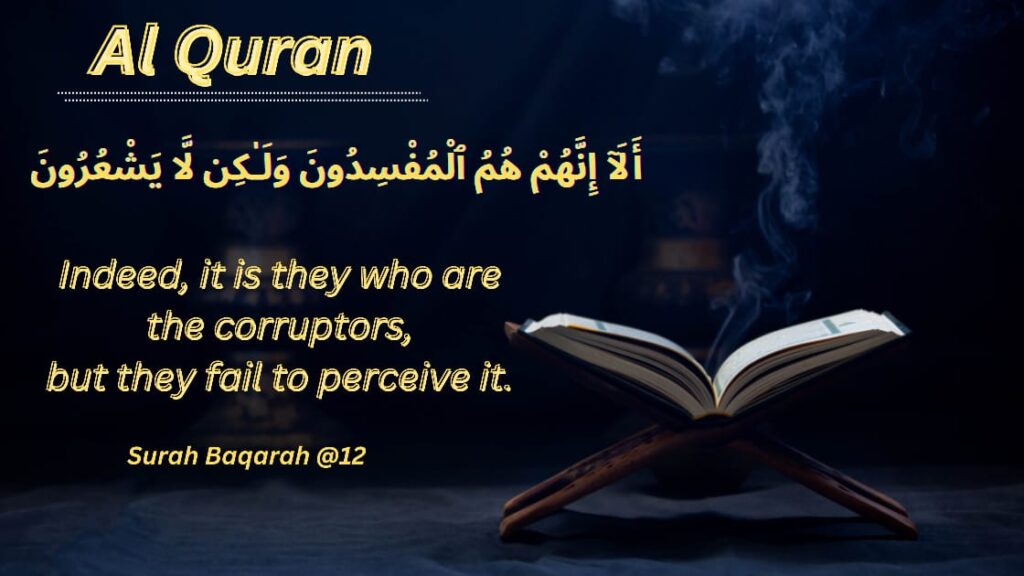
“Reflections on Surah Al-Baqarah: Unveiling Wisdom in Ayat 12” :
The title “Reflections on Surah Al-Baqarah: Unveiling Wisdom in Ayat 12″ suggests an analysis or discussion about a specific verse from Surah Al-Baqarah, which is the second chapter of the Quran. The author likely explores the deeper meanings and insights behind this verse, aiming to uncover the wisdom it holds. This type of reflection could involve interpreting the verse in the context of Islamic teachings, historical context, and broader themes within the Quran.
Understanding the Message of Accountability and Intent in Surah Al-Baqarah :
Surah Al-Baqarah is the second chapter of the Quran, and it addresses a wide range of issues pertinent to the Muslim community. Ayat 12 highlights a crucial theme of accountability and intention in the actions of individuals.
Verse Translation:
(Quran 2:12)
“When it is said to them, ‘Do not cause corruption on the earth,’ they say, ‘We are but reformers.'”
K
Explaination :
This verse is a part of a larger context discussing the response of hypocrites to the Guidance and Warnings given to them by the Prophet Muhammad (peace be upon him) and the believers. In this specific verse, the hypocrites are depicted as responding to the call for righteousness with a claim that they are only seeking to bring about reform.
However, their intentions are questionable, as their actions often contradict their words. They claim to be reformers, but in reality, they might be engaging in actions that spread corruption and discord. This verse serves as a reminder to be cautious of individuals who present themselves as virtuous or well-intentioned but might have ulterior motives.
The verse highlights the importance of sincerity and integrity in one’s actions and intentions. It cautions against hypocrisy and the false claims of being righteous while engaging in harmful deeds.
The Call for Moral Responsibility:
The verse begins by addressing a group of people who are advised not to engage in corrupt or harmful activities on the earth. This call for moral responsibility emphasizes the importance of maintaining social order and promoting well-being in society.
Response of the Wrongdoers:
The verse describes the response of those individuals who are being advised against causing corruption. Instead of acknowledging their potential for wrongdoing, they assert that their intentions are only for positive change and reform. This response showcases a form of Self-deception or justification for their actions.
Intentions and Actions:
This verse draws attention to the contrast between the stated intentions of the individuals and the potential consequences of their actions. While they claim to be reformers, their actions might actually lead to corruption and harm. It highlights the significance of aligning one’s intentions with the actual impact of their deeds.
Accountability and Self-Reflection:
This verse underscores the importance of self-reflection and accountability in the decisions we make. It encourages individuals to critically assess their intentions and actions, ensuring that they are contributing positively to society rather than inadvertently causing harm.
Lesson for Believers:
For believers, this verse serves as a reminder to examine their intentions before engaging in any activity. It encourages them to sincerely seek positive change while being aware of the potential consequences. This promotes an ethical approach to decision-making and encourages a sense of responsibility toward society.
Conclusion:
Surah Al-Baqarah, Ayat 12, highlights the interplay between intentions and actions. It cautions against self-deception and emphasizes the importance of aligning intentions with the greater good of society. This verse serves as a timeless lesson for individuals to introspect, make conscious choices, and ensure that their efforts truly contribute to positive change rather than inadvertently causing harm.




0 Comments